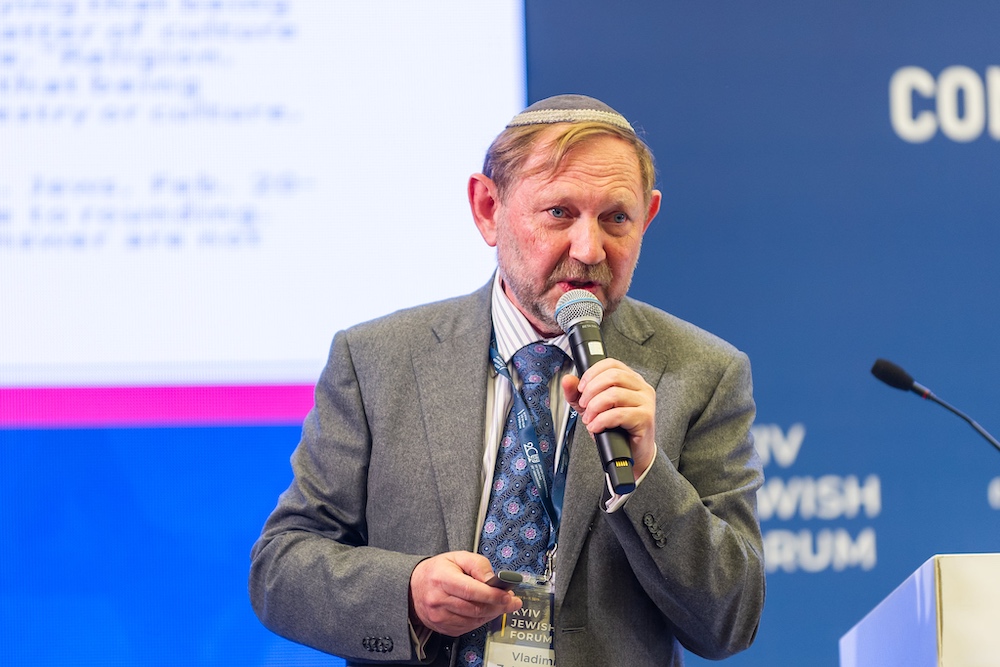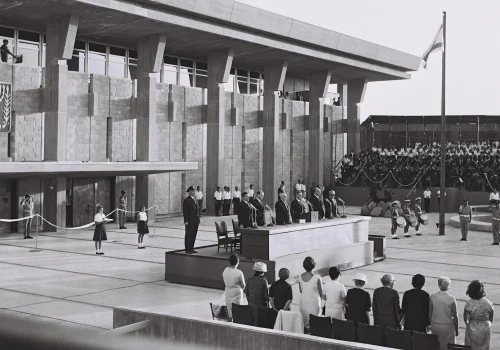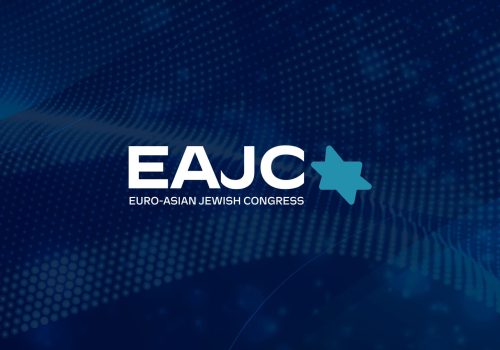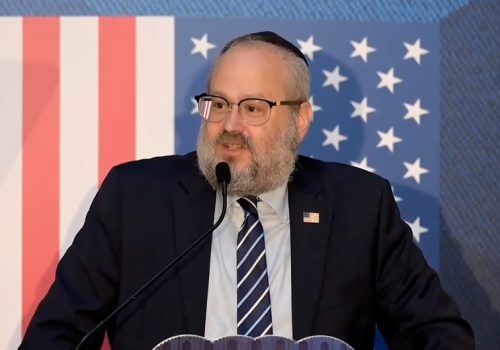
Euro-Asian Jewish Congress is glad to introduce you the Institute for Euro-Asian Jewish Studies Academic Chairman Adjunct Associate Professor Ze’ev Khanin. This is a new and qualitatively more significant level of cooperation with him. Since the establishment of the institute back in 2018, he has chaired its academic board as a volunteer. In his new status, Prof. Ze’ev Khanin will oversee the IEAJS projects and conduct academic and applied research on the current conditions of the Jewish communities of the CIS region, Eastern Europe, Western Balkans, Central and East Asia.
It will include the publication (in cooperation with one of the leading European-American academic publishers De Gruyter – Berlin and Boston), of his book named “Post-Soviet Jewry in Transition”. The first volume of this series is a monograph prepared on the basis of a large-scale Jewish communities of Russia, Ukraine, Belarus, Moldova and Kazakhstan study, conducted as the initiative of the EAJC in 2019-2020. It is scheduled for publication at the end of 2022.
EAJC Director General Dr. Haim Ben Yaakov:
“We are extremely pleased with the fact that the cooperation between the EAJC and Prof. Ze’ev Khanin is reaching a new level. Since we have launched the IEAJS, we have managed to implement a number of significant projects – such as conferences, researches and, of course, release of the EAJC Yearbook consists of articles by leading experts in Jewish Diaspora, Jewish studies, history, culture and diplomacy. The great part in this work was played by Prof. Khanin. Our Institute is already has a recognition and we intend to expand and strengthen our presence in the academic community. Now we are living in the moment of another global geopolitical crises. That is why extremely important to pay attention to objective research that can become the basis for making complex decisions.”
Biography:
Dr. Vladimir (Ze’ev) Khanin is one of the leading Israeli experts on Israel-FSU relations and politics and the Russian-speaking Jewish community in Israel and the diaspora. He received his Ph.D. in Political Science from Moscow Institute for African Studies, the USSR Academy of Sciences in 1989, and in 1991 completed post-Doctoral studies in the Institute for Russian and Soviet Studies at the University of Oxford, U.K. He currently serves as Academic Chairman of the Institute for Euro-Asian Jewish Studies in Herzliya, Israel. He is also an Associate Professor with the Department of Political Studies at Bar Ilan University and Senior Researcher at Ariel University. He gave visiting courses and public lectures for the Israeli and FSU Government as well as gave visiting courses and lectures on Israeli and the FSU Politics and Society in a few universities in Great Britain, the USA, Germany, and the FSU (including London, Boston, Oxford, Potsdam, Moscow, Kiev, Lvov, Kharkov, Riga, Minsk, and Baku). He also serves as a political commentator for the Israeli Channel Nine TV, The Voice of Israel Radio, and the First Radio, Israel. He is the author and editor and co-author of 9 academic books; his interviews and articles often appear within various Israeli, American, European, as well as Russian and other FSU printed and electronic media.
About the IEAJS:
The Institute for Euro-Asian Jewish Studies (IEAJS), founded by the Euro-Asian Jewish Congress, is envisioned as an academic think-tank and platform for academic and professional exchange among leading experts that study Jewish communities of the Former Soviet Union, Balkan and Asian countries, as well as “transnational Jewish diasporas”—communities that are detached from their countries of origin.
The Institute will facilitate academic and applied studies that examine the current affairs and needs of Euro-Asian Jewish communities, their social and political standing in their host countries, as well as their relations with the State of Israel and other global and regional powers. It will also investigate Jewish migration processes and the historical, cultural and political heritage of these communities.
ОThe Institute will support original academic and applied research; facilitate conferences, seminars, presentations and other academic and public events; and provide a platform for academic publications.



